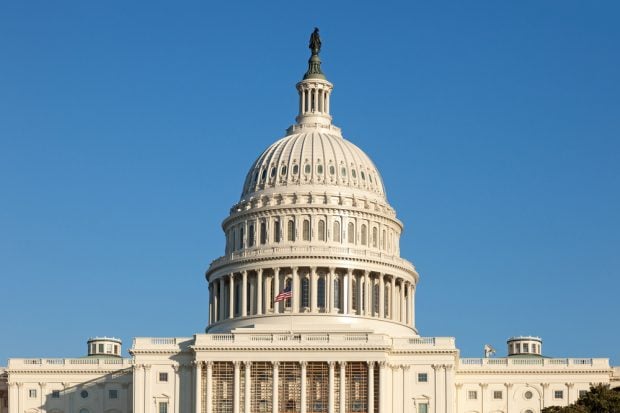 U.S. Capitol building. (Source: Shutterstock)
U.S. Capitol building. (Source: Shutterstock)
Every state banker association is asking congressional tax-writing committees to examine whether credit unions still should be exempt from filing federal tax documents detailing their activities.
The 50 state associations and one representing Puerto Rico also asked the committees to investigate whether the NCUA is "promoting policies that make the industry less safe, less sound, more bifurcated, and less directed toward its statutory mission to serve consumers of 'small means.'"
Recommended For You
"Many credit unions know that the equality-essential mission is increasingly just rhetoric, despite it being baked into the law and a primary reason for both advantageous regulation and an income tax exemption," the banking groups wrote, in asking Congress to decide whether credit unions should be exempt from filing so-called "Form 990."
And they attached a copy of a controversial study by Federal Financial Analytics that questioned whether credit unions have blurred the lines between banks and credit unions. And the study, which was financed by the American Bankers Association, questioned whether credit unions continue to fulfill their mission.
They added that credit unions are buying banks, while the NCUA is loosening the regulatory reins on the institutions it regulates.
Credit union trade groups quickly fired back.
"It's pretty rich for an industry that nearly brought down the economy a decade ago, has been subject to $260 billion in fines and settlements since the crisis and then scored a nearly $30 billion windfall in the tax reform bill to suggest that credit unions are in need of greater oversight," said Ryan Donovan, CUNA's chief advocacy officer.
"The entire argument of the state bank associations' letter rests solely on a shaky paper that was bought and paid for by their sister organization, the American Bankers Association," said Carrie Hunt, NAFCU's executive vice president of government affairs and general counsel. "Yet, the letter fails to disclose this important fact to lawmakers on Capitol Hill which should raise alarming questions about bank lobbyists' true motive."
She said that Congress is increasingly investigating bank wrongdoing and the state associations are attempting to deflect attention away from banks.
And Brad Thaler, NAFCU's vice president of legislative affairs, sent his own letter to the lawmakers noting the alleged transgressions by banks and saying that the credit union tax exemption is "an issue of survival" for credit unions.
Last year, then-Senate Finance Committee Chairmen Orrin Hatch (R-Utah), wrote to the Internal Revenue Service questioning whether federal credit unions, particularly large ones, should be required to file informational tax returns.
At the time, IRS officials dodged the issue.
Hatch retired last year and so far, no other member of Congress has picked up the issue.
© Touchpoint Markets, All Rights Reserved. Request academic re-use from www.copyright.com. All other uses, submit a request to [email protected]. For more inforrmation visit Asset & Logo Licensing.






